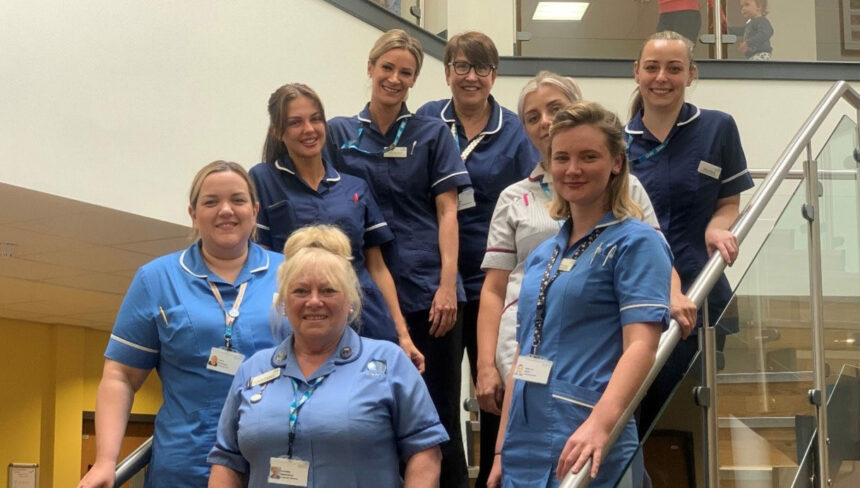Award-winning impact
A leg ulcer tracker was put in place to track and manage the leg ulcers on each community team caseload and evidence how many ulcers they were able to heal and the timeframe for healing. In Cockermouth Community Nursing Team, before the training was delivered (April 2022) there were 32 patients with a leg ulcer on their caseload, some of which were bilateral. A few months after training, this number had more than halved to 15 – evidencing clear, improved healing times. This enhanced healing rate has been reflected across the other community nursing teams in North Cumbria who took part in the training.
The impact of the new training model and the commitment of the community team was also recognised in the Journal of Wound Care Awards 2023 where North Cumbria was awarded Gold in the Safe and Effective Woundcare in a Non-specialist Setting category.
“I am immensely proud of the work and achievements to date and so excited about the future outcomes of this work for our staff and our patients. From a staff perspective, the extended role for both registered and non-registered staff will hopefully enhance job satisfaction, aid recruitment and retention and reduce the MSK burden that comes with carrying out these treatments in the home environment. The cost of compression bandaging and wound products will reduce the burden of cost experienced by the care group. However the most important thing is that the enhanced healing rate gives patients their life back in so many ways”
How a new leg ulcer training model has transformed leg ulcer outcomes within North Cumbria Integrated Care NHS Trust.
Cockermouth Community Nursing Team, part of North Cumbria Integrated Care NHS Trust, is a small community nursing team that serves a large, mostly rural geographical area. Challenges of an older, sometimes isolated or hard-to-reach population, alongside the geographical scale of the area, meant that the team was becoming overwhelmed by the demands of effectively and safely treating leg ulcers. This was a situation that was replicated in other community nursing teams across North Cumbria Integrated Care.
A new model of training
A big part of the challenge was that not enough of the community teams had the skills to apply compression effectively. This is a familiar scenario in many community teams across the country and one that increases the risk of people with leg ulcers being harmed through lack of early and effective compression therapy. The need for a new model of training that could quickly and effectively upskill the community team on safe and effective use of compression therapy was identified and a funding bid successfully applied for.
On the job training delivered by an external expert
An independent wound care expert was brought in to deliver training across community nursing teams in North Cumbria Integrated Care NHS Trust, including Cockermouth Community Nursing Team. This not only made sure that the training would be of a consistent and high standard across all the community teams but took the pressure off vascular clinicians who might otherwise be expected to train their colleagues.
The way the training was delivered was also a quite novel approach. Prior to the training, the consultant spent a day with each community nursing team to understand what the main challenges and complexities were with the leg ulcers on each team’s caseload.
The training itself was delivered face-to-face at the team’s base. The course comprised a day of theory to make sure everyone understood the aetiology of leg ulcers and how to treat them. The practical day provided training on how to provide compression.
The training was also delivered to non-registered staff, recognising the difference that non-registered healthcare practitioners can have on patient outcomes when they are trained to apply compression.

Leg ulcer champions
As part of the training, each community nursing team was also asked to identify a leg ulcer champion. Leg ulcer champions were given further training and extra responsibilities such as signing staff off as competent and supporting new members of staff to gain their competencies. The creation of leg ulcer champions is helping make sure that leg ulcers and their safe and timely treatment through effective training remains a priority across every community team.
Article by Salli Pilcher
Associate Director of Nursing, North Cumbria Integrated Care NHS Trust









